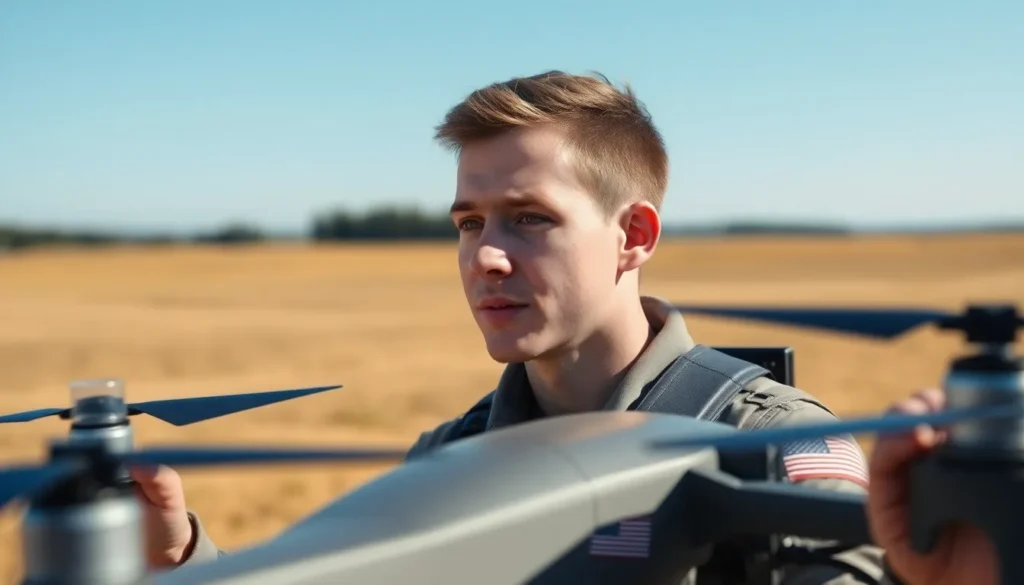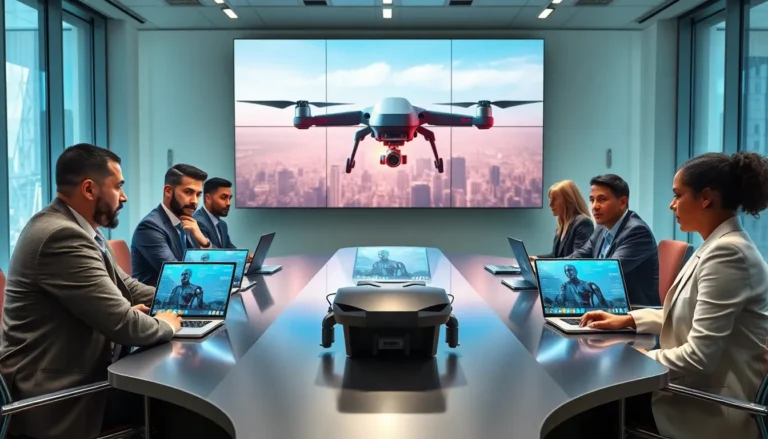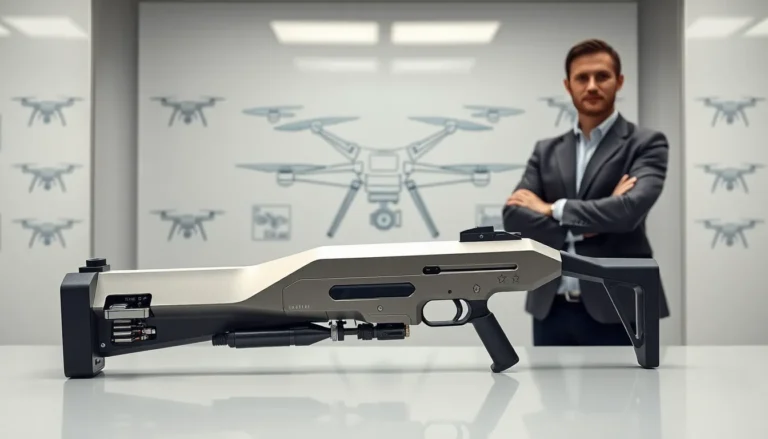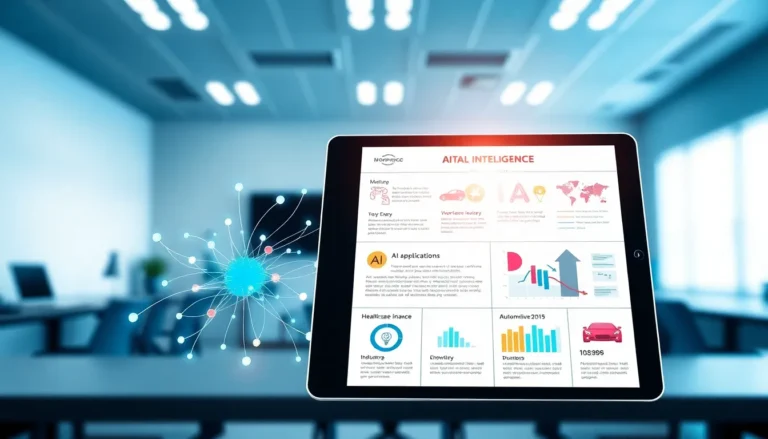Table of Contents
ToggleIn a world where drones zip through the skies like caffeinated bees, becoming a UAV pilot isn’t just a trend—it’s practically a superpower. Imagine soaring above the clouds, controlling your very own flying machine while your friends are still figuring out how to parallel park. UAV pilot training opens the door to thrilling adventures and career opportunities that are as vast as the sky itself.
Overview of UAV Pilot Training
UAV pilot training encompasses various components that equip individuals with the necessary skills to operate unmanned aerial vehicles effectively. Initially, structured coursework provides foundational knowledge about drone systems, regulations, and safety protocols. Participants dive into topics such as airspace classification and local laws governing UAV operations.
Hands-on flight training forms a crucial part of the learning experience. Students practice flying different models in simulated environments, where they develop practical skills and gain confidence. Instructors emphasize real-time troubleshooting and decision-making skills, essential for safe UAV operation.
Certification processes typically involve passing specific exams. The Federal Aviation Administration (FAA) requires pilots to obtain a Remote Pilot Certificate, a key qualification for commercial UAV use. This certificate demonstrates competency and knowledge of applicable laws and regulations.
Industry-specific training is also available. Various sectors, including agriculture, construction, and filmmaking, offer specialized courses focusing on the UAV applications relevant to their fields. These courses prepare pilots to utilize drone technology efficiently in their respective industries.
Networking opportunities frequently accompany UAV training programs. Engaging with industry professionals allows pilots to forge connections and discover potential career paths. Such interactions can lead to job placements and collaborations on innovative projects.
With the rapid advancements in UAV technology, continuous education plays a vital role. Staying updated on the latest regulations, hardware, and software trends benefits pilots and enhances their skill sets for ongoing success.
Importance of UAV Pilot Training
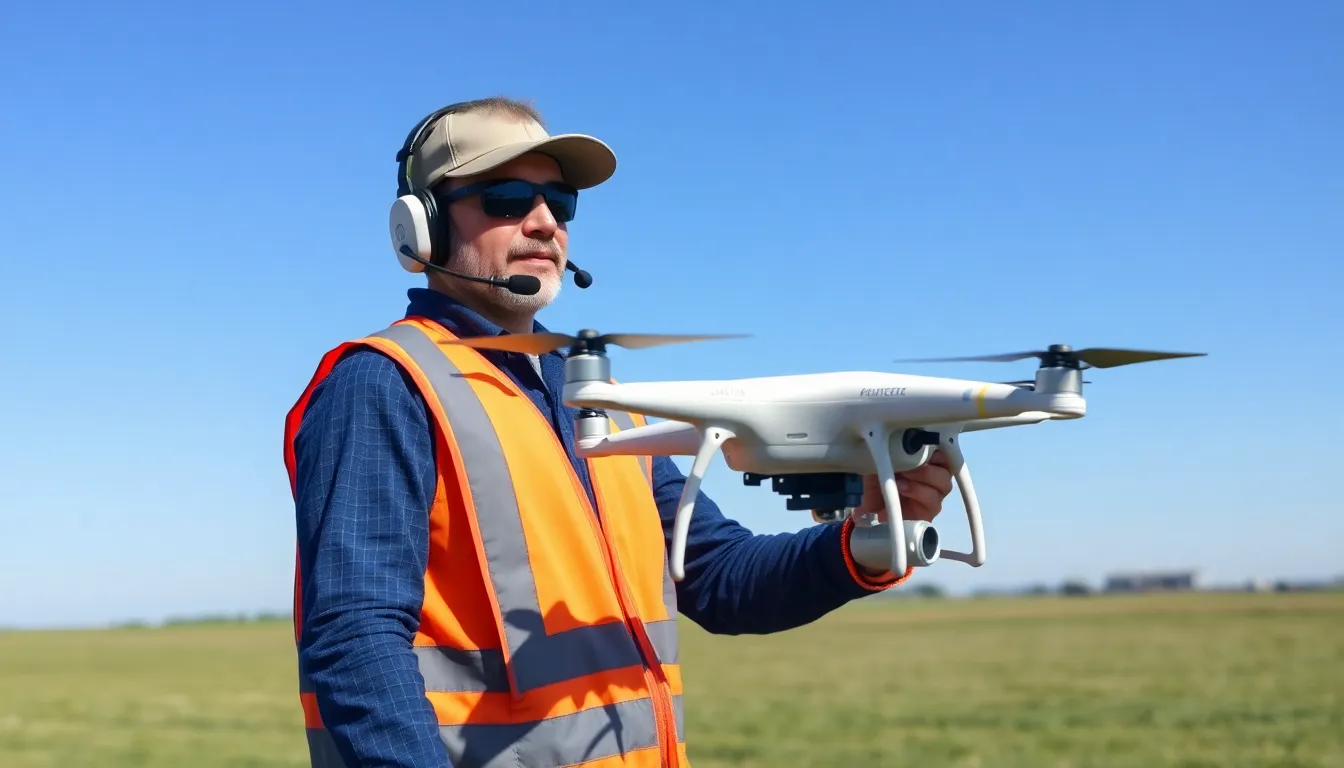
UAV pilot training plays a critical role in ensuring safe and effective drone operations. Comprehensive training establishes a foundation in skills and knowledge necessary for success.
Safety Considerations
Safety remains a paramount concern in UAV operations. Pilots must master the ability to assess risks before flying. Training programs teach risk management strategies that include understanding weather conditions, avoiding no-fly zones, and maintaining equipment. Learning to respond to emergencies contributes to minimizing accidents. Also, pilots who are proficient in safety protocols reduce the likelihood of incidents that may result in damage or injury.
Regulatory Compliance
Regulatory compliance is essential for legitimate UAV operations. Understanding relevant laws and regulations helps pilots navigate the complexities of drone use. The FAA mandates operators to hold a Remote Pilot Certificate, signifying their knowledge of airspace rules. Training programs cover crucial topics such as flight restrictions and reporting requirements. Compliance ensures safe interactions with manned aircraft and fosters responsible drone use. Being well-versed in regulations also enhances a pilot’s marketability in the industry.
Types of UAV Pilot Training Programs
UAV pilot training programs come in various formats, catering to different learning preferences and needs. Each type offers unique advantages, helping aspiring pilots develop the skills necessary to operate drones effectively.
Online Training
Online training provides flexibility and convenience, allowing students to learn at their own pace. Many courses cover theoretical aspects such as drone regulations, safety protocols, and flight principles. Interactive modules often enhance engagement, providing quizzes and video lectures. Additionally, students gain access to a wealth of resources, including forums for peer interaction and instructor support. This format suits those with busy schedules or geographical constraints, making it accessible to a broader audience.
In-Person Training
In-person training offers hands-on experience and direct instructor interaction. Students participate in practical flight sessions, allowing for immediate feedback on flying techniques and maneuvers. These programs typically feature structured coursework and may include simulations for complex scenarios. Networking opportunities arise through interactions with industry professionals and fellow students. This method fosters camaraderie and encourages collaboration, essential for building a professional network in the UAV field.
Hybrid Training Options
Hybrid training combines online and in-person elements, maximizing the benefits of both formats. Students engage with theoretical materials online before applying knowledge during practical sessions. Flexibility remains a key advantage, allowing individuals to balance commitments while receiving quality instruction. These programs typically include a blend of group activities and one-on-one support, catering to diverse learning styles. This approach prepares pilots well for real-world situations, ensuring comprehensive skill development.
Skills Development in UAV Pilot Training
UAV pilot training focuses on developing essential skills for successful drone operation. Key competencies include technical and soft skills.
Technical Skills
Understanding drone technology is vital for UAV pilots. Mastering flight controls, navigation systems, and data transmission enhances operational efficiency. Pilots learn to interpret telemetry data, adjusting flight paths as needed. Familiarity with maintenance procedures ensures drones function optimally during missions. Knowledge of regulatory requirements empowers pilots to operate within legal frameworks. Lastly, training programs emphasize the importance of troubleshooting techniques to resolve potential issues swiftly.
Soft Skills
UAV pilots benefit from strong communication skills. Clear communication with team members and clients facilitates effective collaboration. Decision-making abilities become crucial during high-pressure situations, impacting safety and mission success. Adaptability plays a key role, as pilots frequently navigate changing environments and technology. Furthermore, critical thinking enhances problem-solving capabilities, enabling pilots to analyze information quickly. Lastly, time management skills help optimize flight schedules and ensure efficient project execution.
Future Trends in UAV Pilot Training
Emerging technologies shape the future of UAV pilot training significantly. Virtual reality (VR) and augmented reality (AR) gain popularity, offering immersive flight simulation experiences that enhance learning outcomes. Increased use of drones in agriculture, public safety, and real estate necessitates specialized training programs tailored for these sectors.
Unmanned traffic management systems introduce complexity to operations. Enhanced training on managing drone fleets and integrating them into controlled airspace becomes essential. Artificial intelligence (AI) in drones improves autonomous flight capabilities and facilitates decision-making, mandating that training curricula adapt accordingly.
Regulatory changes impact training approaches. Pilots learn increasingly about compliance with updated Federal Aviation Administration (FAA) guidelines while new regulations emerge. Continuous education models become standard, ensuring pilots remain informed about evolving laws and operational standards.
Industry partnerships expand training opportunities. Collaborations with tech companies and educational institutions develop hybrid programs, combining theoretical foundations with practical applications. Universities offer degrees specifically in drone technology and remote sensing, elevating professional standards in the field.
Networking also transforms in training environments. Online platforms enable pilots to connect with industry experts and peers, fostering community and collaboration. Engaging in workshops and conferences exposes pilots to cutting-edge technologies and best practices.
Focus on soft skills continues to grow. Communication and teamwork play critical roles in successful UAV operations, with enhanced training on these aspects becoming increasingly important. Pilots who adapt to both technical and soft skill demands will thrive in dynamic work settings.
UAV pilot training is a vital stepping stone for those looking to excel in the drone industry. With the rapid advancements in technology and the increasing demand for skilled pilots, the benefits of comprehensive training cannot be overstated. From mastering technical skills to developing essential soft skills, training programs equip pilots to navigate complex environments and regulations.
As the industry continues to evolve, staying informed through ongoing education will be crucial. Embracing new technologies and adapting to regulatory changes will ensure pilots remain competitive and effective. The future of UAV piloting is bright for those who commit to continuous learning and skill enhancement.

